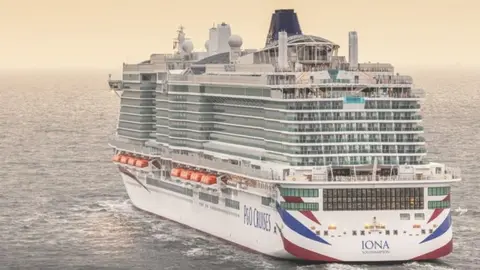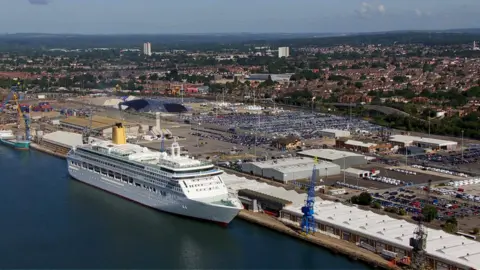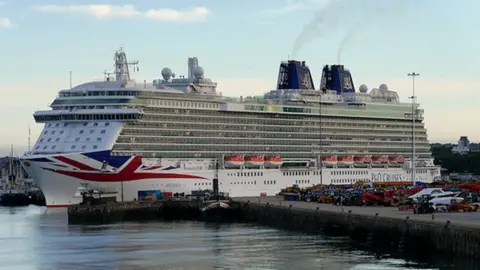Southampton cruise ships' methane emissions surge, study says
 Press Association
Press AssociationA UK port has seen a dramatic rise in methane emissions from cruise ships, a study has said.
Vessels in Southampton produced more than 14 tonnes of the potent global warming gas in 2022, a 36-fold increase over three years, according to campaign group Transport & Environment (T&E).
It blamed the introduction of new ships using liquefied natural gas (LNG) fuels.
The city's main cruise firm Carnival said emissions had reduced since 2011.

T&E said the rise in methane was the "most worrying trend" in European cruise ship emissions.
Its report said the UK's first LNG-powered cruise ship, P&O's Iona, produced as much methane in 2022 as 10,500 cows.
The group said the problem was caused by "methane slip" - the incomplete combustion of methane-based LNG fuels.
T&E said: "These ships are better in terms of air pollution, but they are extremely damaging from a climate perspective due to methane leaks from their engines."
 David Dixon
David DixonIt added that carbon dioxide emissions from Southampton's 44 cruise ships rose 14% over three years to 32 tonnes in 2022.
The port had visits from 41 cruise ships in 2019.
Scientists say methane is a much more potent global warming gas than carbon dioxide.
Over a 100-year period it is thought to be 28-34 times as warming as CO2, while over a 20-year period it is around 84 times as powerful per unit of mass as carbon dioxide.
Carnival, P&O Cruises' parent company, said it could not comment directly on the T&E study.
However, a spokesperson said: "The science is clear - the most credible peer-reviewed study on the subject shows that LNG has much lower overall greenhouse gas emissions vs. conventional fuels, even factoring in methane slip."
The firm said it had reduced greenhouse gas emissions since 2011 and aimed to achieve carbon-neutral ship operations by 2050.

Follow BBC South on Facebook, Twitter, or Instagram. Send your story ideas to [email protected].
